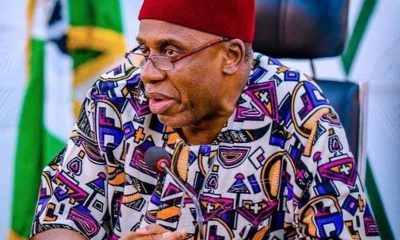Business
Same economic consideration driving Kano-Maradi rail, Enugu-Bamenda highway – BMO
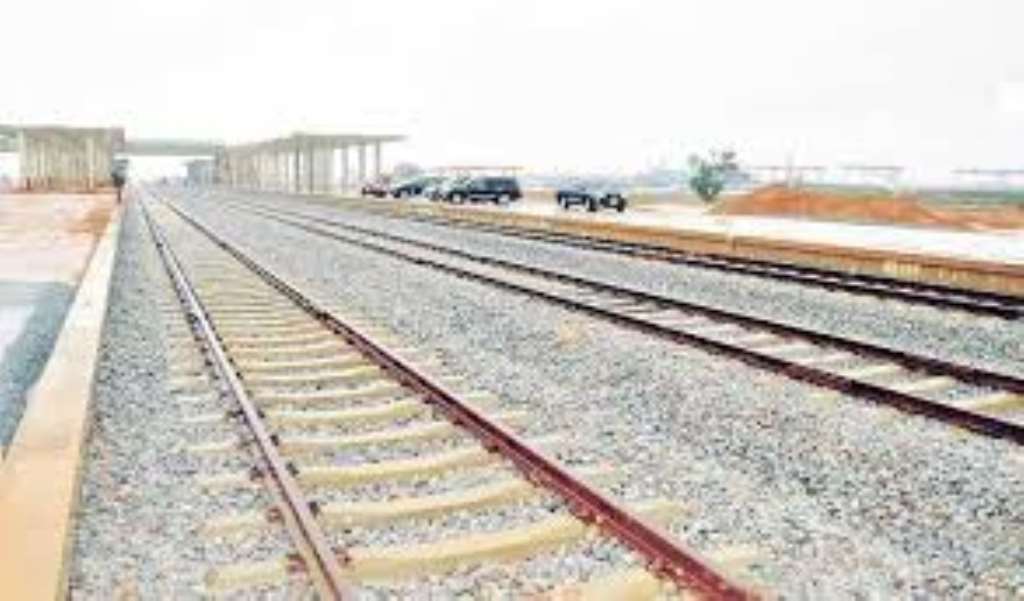
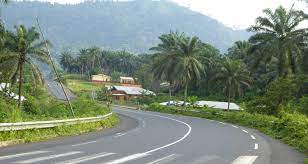
The economic motivation and philosophy behind the Kano- Maradi rail project are the same driving the 403km highway linking Enugu to Bamenda in Cameroon, Buhari Media Organisation has said.
Bamenda is in Cameroon, while Maradi is in Niger Republic.
The Kano-Maradi rail project has faced a lot of criticisms from many influential groups and opinion leaders as a way to spend on a project, a new corridor linking Sahelo-Sahara with Nigerian coast.
But the BMO maintained that only hypocrites would condemn the Kano-Maradi rail but keep silent over the Enugu-Bamenda highway.
It said in a statement signed by its Chairman Niyi Akinsiju, and Secretary, Cassidy Madueke, that it would be sheer hypocrisy for anyone to condemn the rail project but remain silent on the highway project in the South.
It stated, “We find it strange that many people, including opposition elements who saw everything wrong with President Muhammadu Buhari’s approval of a rail project linking three states in Northern Nigeria to a border town in the Niger Republic, are unusually silent about the government’s decision to stick with the 2007 agreement with the African Development Bank (AfDB) and Cameroon.
“But for us, the same economic factors that the Buhari administration took into consideration in committing itself to the $1.96bn standard gauge rail project are not different from the decision to link one of the major cities in Southern Nigeria to a city in Cameroon.
“For the avoidance of doubt, the 387km railway line is to run through Kano, Jigawa and Katsina states which are significant trade hubs with massive markets including Dawanau which is believed to have an annual trade volume of $2.5bn, to Maradi which is the major transport and agriculture hub of Niger’s south-central region.
“It is also important to note that 11 out of the 12 stations on the route are in Nigeria with the terminal point at the border town of Maradi which is 622 kilometres from Niamey, the capital of Niger while the highway into Cameroon will terminate within 300 kilometres of Yaounde, the capital city.
“The Enugu to Bamenda highway will drive a lot of economic activities in several Nigerian communities in the South, up to the border with Cameroon, but it is only the rail project that has the potential of opening up a vibrant export route into our landlocked neighbours, especially as it is to be linked to the Lagos-Kano rail line which already has an extension to the Apapa ports via the Lagos-Ibadan rail line.
“So we make bold to affirm that the economic considerations for the two projects are similar and both will add a lot of value to commercial activities along the corridors.”
The BMO also criticised the Peoples Democratic Party, which was critical of the Kano-Maradi rail project.
It stated, “Of all the criticisms that trailed the project, the one that many discerning Nigerians found hard to live with was that of PDP which through its media handlers described it as wasteful.
“However, it is the same party under the Goodluck Jonathan administration that conceived the idea of linking Nigeria to Niger and in fact had a more elaborate plan that would have begun in Zaria, in Kaduna State and terminate in Niamey which is almost 700km from Maradi where the current project is ending.
“So under President Buhari’s watch, Nigeria is making considerable investments on two major cross-border infrastructure projects and the administration deserves credit for remaining committed to actualising them even if it did not originally conceive them.
“And as the President said in one of his recent TV interviews, it’s all about economics though some sceptics opted to ignore his justification of the Kano-Maradi project.”
The group also reassured Nigerians that the President would keep to the terms of his vow to improve on the country’s infrastructure, despite the dwindling oil revenue.
Business
How to use $23bn forex reserves to stablise exchange rate, by Uwaleke

How to use $23bn forex reserves to stablise exchange rate, by Uwaleke
A financial expert, Prof. Uche Uwaleke has said the accretion of Foreign Exchange Reserves (NRER) at 23.11 billion dollars to Nigeria’s external reserves puts the Central Bank of Nigeria (CBN) in a stronger position to defend the value of the naira.
“The CBN can leverage rising external reserves to intervene in the forex market whenever it becomes necessary to stabilise the exchange rate,” Uwaleke said while arguing that the current size of the NER will positively impact on the value of the Naira.
Uwaleke, a Professor of Capital Market at the Nasarawa State University, Keffi, is also the President of the Capital Market Academics of Nigeria, however, raised concerns that the increase in the nation’s foreign reserves had been largely on account of temporary FX inflows such as Foreign Portfolio Investments (FPIs) and foreign loans.
He said that they represented unsustainable sources of growing external reserves.
“Impatient capital such as FPIs carry a lot of risks and have the potential of destabilising the economy whenever they leave the country.
“Against this backdrop, the government should pay more attention to diversifying the export base of the economy, especially via agriculture and solid minerals.
“The government should also create the enabling environment that attracts sustainable Foreign Direct Investments (FDIs) ,” he said.
READ ALSO:
- Heavy gunfire in FCT, police recover stolen cars, suspects arrested
- Residents of Lagos, Enugu face extreme heat, amid power issues
- 18 killed as flood wreaks havoc in parts of US
The CBN recently revealed that the NFER stood at 23.11 billion dollars at the end of 2024, their highest level in three years.
The apex bank said that the development signalled a major improvement in the country’s external financial position.
It said that the NFER, which adjusts gross reserves to account for near-term liabilities such as currency swaps and forward contracts, stood at 3.99 billion dollars at the end of 2023.
According to the CBN Governor, Yemi Cardoso, the improved position was due to substantial reduction in short-term foreign exchange liabilities, notably swaps and forward obligations.
Cardoso cited measures aimed at boosting forex market confidence and reserves, alongside increased non-oil foreign exchange inflows.
“This improvement in our net reserves is not accidental; it is the outcome of deliberate policy choices aimed at rebuilding confidence, reducing vulnerabilities, and laying the foundation for long-term stability.
“We remain focused on sustaining this progress through transparency, discipline, and market-driven reforms,” Cardoso said.
He said that Gross external reserves also climbed to 40.19 billion dollars at the end of 2024, up from 33.22 billion dollars the previous year.
“Reserves declined in the first quarter of 2025 due to seasonal factors and foreign debt interest payments, the CBN anticipates a steady uptick in reserves throughout the second quarter,” Cardoso said.
How to use $23bn forex reserves to stablise exchange rate, by Uwaleke
(NAN)
Business
Fuel prices to fall as global cost of crude drops
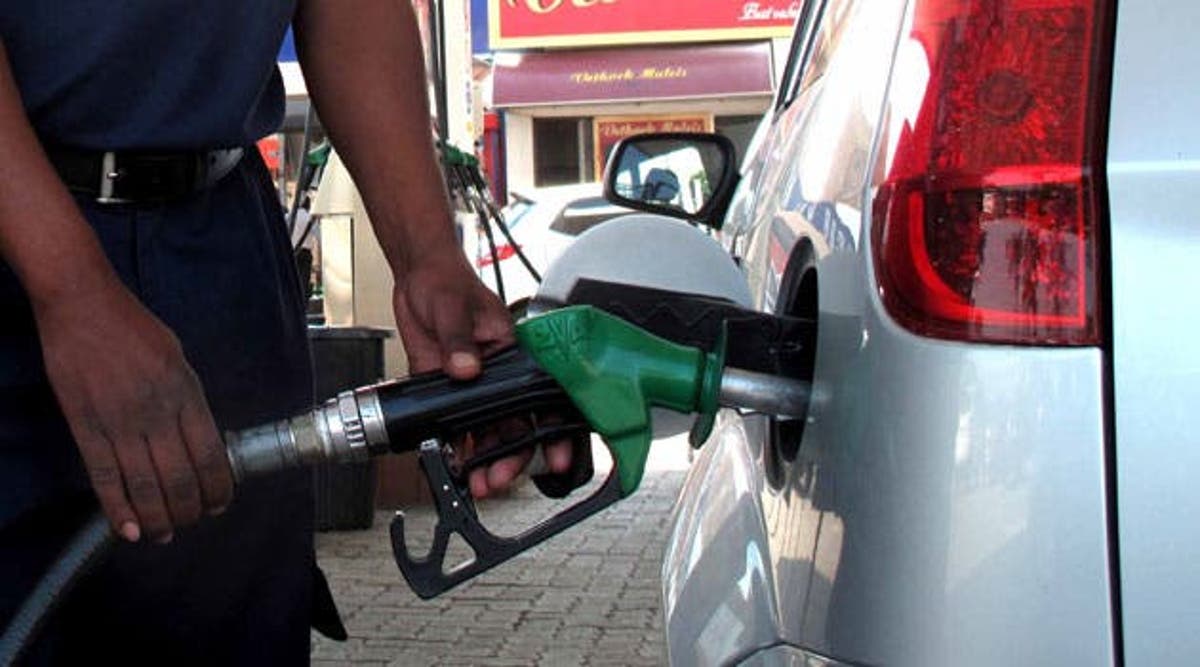
Fuel prices to fall as global cost of crude drops
Nigerians are expected to pay less for Premium Motor Spirit, also known as petrol, as the price of Brent dropped to $65 per barrel from $69.90 per barrel in the global market.
The price of Brent is used globally to benchmark the prices of other crudes. major feedstocks – and by extension petroleum products prices.
The development was partly fueled by the US President Donald Trump’s announcement of sweeping new tariffs.
This was reportedly fueled by the decision of the Organisation of Oil Producing Countries and its allies to increase oil output by 410,000 barrels per day starting May 2025 far above the 135,000 barrels originally planned.
A report by Vanguard stated that the depot prices of Mainland, A.Y.M and Ever have dropped to N918 per litre from N920 and N919 from N920 per litre, respectively.
Also, the depot prices of Prudent, Eterna and Soroman have dropped to N912 from N913 per litre, N897 from N900 per litre and N915 from N916 per litre, respectively.
READ ALSO:
- CBN injects $197.71m to boost FX as Trump trade tariff spreads
- Thousands protest in Spain over nationwide housing crisis
- Breaking: Former Oyo governor Olunloyo dies at 89
According to petroleumprice.ng, oil marketers would likely adjust their pump prices downwards as they get new supplies this week, if the current market condition persists.
The Vanguard report quoted the President of Petroleum Products Retail Outlets Owners Association of Nigeria, PETROAN, Billy Gillis-Harry, expressed optimism that the development would culminate in low costs of fares, goods and services if the fundamentals persist in the market.
Business
CBN injects $197.71m to boost FX as Trump trade tariff spreads

CBN injects $197.71m to boost FX as Trump trade tariff spreads
The Central Bank of Nigeria (CBN) has supplied $197.71 million to the foreign exchange market through sales to authorised dealers.
The apex bank’s director of financial markets department, Omolara Duke, disclosed this in a statement on Saturday in Abuja.
She noted that the intervention aligned with the apex bank’s ongoing commitment to ensuring adequate liquidity and supporting orderly market functioning.
According to Ms Duke, the move reflects the CBN’s broader objective of fostering a stable, transparent, and efficient foreign exchange market.
She said the decision was largely influenced by recent movements in the FX market, driven by the announcement of new U.S. tariffs and declining crude oil prices.
“The CBN has observed recent fluctuations in the foreign exchange market between April 3 and April 4.
READ ALSO:
- Thousands protest in Spain over nationwide housing crisis
- Breaking: Former Oyo governor Olunloyo dies at 89
- Anti-Trump protesters gather in cities across the US
“These are reflective of broader global macroeconomic shifts currently impacting several emerging markets and developing economies.
“These developments stem from the recent announcement by the United States government of new import tariffs on goods from several economies, triggering a period of adjustment across global markets,” she said.
Ms Duke said crude oil prices had dropped by over 12 per cent, falling to approximately $$65.50 per barrel, introducing new challenges for oil-exporting nations like Nigeria.
She said the CBN would continue monitoring global and domestic market conditions.
Ms Duke expressed confidence in the resilience of Nigeria’s foreign exchange framework, which is designed to adjust in line with evolving economic fundamentals.
“All authorised dealers are reminded to strictly adhere to the principles outlined in the Nigerian FX Market Code and uphold the highest standards in their dealings with clients and market counterparties,” she said.
CBN injects $197.71m to boost FX as Trump trade tariff spreads
(NAN)
-

 Education2 days ago
Education2 days agoErudite mass comm lecturer Oscar Odiboh becomes full professor at Delta State University
-

 metro3 days ago
metro3 days agoAutopsy reveals cause of Nigerian boxer death during fight in Ghana
-

 Entertainment3 days ago
Entertainment3 days agoA colleague raped me, Actress Lolo 1 alleges
-

 metro3 days ago
metro3 days agoScavenger killed, many injured as military grenade explodes in Lagos
-

 Sports3 days ago
Sports3 days agoWife of Manchester United goalkeeper, Onana, robbed of £62,000 handbag, Rolex
-
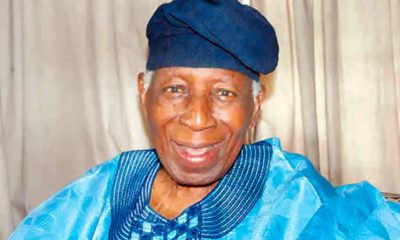
 metro2 days ago
metro2 days agoBreaking: Former Oyo governor Olunloyo dies at 89
-

 International3 days ago
International3 days agoTrump: VOA goes off air in Nigeria, Ghana, others
-

 metro2 days ago
metro2 days agoNurse leaves US, seeks new life in Nigeria, says everything not money









